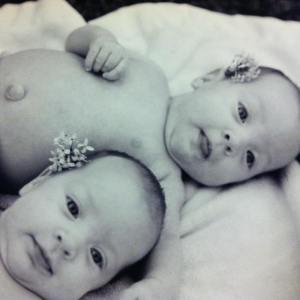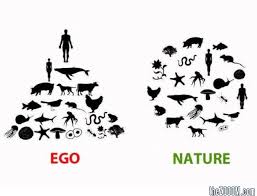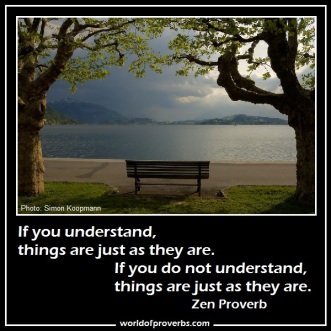
Since the early 1970s, I’ve held to the opinion that basic human nature is good. I’m not sure why I think so. My conclusion is partly evidence-based for the good, but since so much in human history is to the contrary, many people disagree with me. We seem quite set on damaging ourselves and the world around us in ways that are evil.
I’m also unclear about why it should matter. No one knows the answer to our basic nature. It’s too complicated. But when I consider my personal basic nature, the one I was born with; is it good or evil? Or should I ask, was it? When did it start to change – before or after birth? What do you think your nature is? How do we see the basic nature of others? Good or bad? Are there bad seeds among us?
 It is what it is. However, I wonder if our opinion on this matters more than the real answer. It’s like believing in a god – it either exists or it doesn’t. Our believing or doubting anything changes nothing about reality (placeboes or magic notwithstanding). Our opinion on this affects how we see the world, other people – and most importantly, how we see ourselves. Me, is the one thing in the universe that I have some control over—maybe.
It is what it is. However, I wonder if our opinion on this matters more than the real answer. It’s like believing in a god – it either exists or it doesn’t. Our believing or doubting anything changes nothing about reality (placeboes or magic notwithstanding). Our opinion on this affects how we see the world, other people – and most importantly, how we see ourselves. Me, is the one thing in the universe that I have some control over—maybe.
To the point, I just finished reading Straw Dogs by John Gray. It’s unrelated to the 1971 Sam Peckinpah movie of the same name, or to the 2011 remake; both of which are, ironically, based on a novel with a different name (The Siege of Trencher’s Farm).
Note to self: book titles and author’s names matter.
 The premise of Straw Dogs is that humans are animals like any other animal. Both Christianity and Humanism see humans as capable of controlling things much more than Gray and others seem to think we do. This is a philosophical book that challenges many basic assumptions about what it means to be human. While I don’t agree with some of what Gray presents, I admit that he makes astonishing points that lead me to question which of us is correct. Regarding several of his positions, I think he’s nuts. But I find many of his other arguments compelling. Reading John Gray made me think, wonder, and contemplate – not the meaning of life, but its nature.
The premise of Straw Dogs is that humans are animals like any other animal. Both Christianity and Humanism see humans as capable of controlling things much more than Gray and others seem to think we do. This is a philosophical book that challenges many basic assumptions about what it means to be human. While I don’t agree with some of what Gray presents, I admit that he makes astonishing points that lead me to question which of us is correct. Regarding several of his positions, I think he’s nuts. But I find many of his other arguments compelling. Reading John Gray made me think, wonder, and contemplate – not the meaning of life, but its nature.
Are we animals? For an excellent article on this, click here.
Is our nature much different than it has been for centuries? Have we changed significantly in the thousands of years since our first existence as homo sapiens? Are we any different from other animals in terms of what happens to us?
Humans have been in existence much as we are now for about 200,000 years. For about the last 6,000 years, we have been the social creatures we know ourselves to be. How do we fit into our environment? Do we belong here? How long will we survive as a species? Are we masters of our own destiny any more than any other animal? Are we doomed to destruction by our own actions?
I’ve seldom thought about it, but Professor Gray makes this point right off. His position seems to be that the last time we had it right, we were hunter-gatherers. I tend to agree. Gray begins with this basic assumption regarding evolution and religious culture.
“If Darwin’s discovery had been made in a Taoist or Shinto, Hindu or animist, culture it would very likely have become just one more strand in its intertwining mythologies. In these faiths humans and other animals are kin. By contrast, arising among Christians who set humans beyond all other living things, it triggered a bitter controversy that rages on to this day.” ~ John Gray, Straw Dogs
Accordingly, Gray says that Humanist’s believe that through progress, humans can be free of the limits that burden other animals. That by using our knowledge, we can control our environment and flourish as we never have before. Gray also has an interesting take on history; he seems to say it has little or no meaning.

I like this book because it deals with some aspects of the dark side of human nature. Interestingly, most of us know about the Holocaust, the WWII effort by Nazis to commit genocide and eradicate Jews. How many other genocides (or politicides) in human history can you name? Gray proposes, with evidence, that genocide is “as human as art or prayer.” Apparently, we are not very nice to each other, to other living creatures, or to nature in general. Along with others of similar philosophies, John Gray is talking about humans in a general sense.
The question for me is: how does all this square with my position that our basic nature is good? Maybe the answer doesn’t matter because he undermines so many of my humanist leanings, thus shattering my position that humans are special. I’ll retreat to my favorite elusion from Hamlet: “there is nothing either good or bad, but thinking makes it so.”
There is much we don’t know. But this Zen Proverb meme says it for me.

Whatever our nature is, we share that truth with each other.
Let’s live our lives in awe of nature by embracing both sun and rain,
all flora and fauna,
and our fairies — Fenix and Furie.
Life is good and so are we, but mind the gaps and look both ways.
One word: Greed.
LikeLike
I assume that you’re saying greed is the basic nature, or a big part of it. Maybe so. Certainly we see a lot of that, but we also see a lot of caring and sharing. I’m looking for my next blog topic. Maybe that’s it. Thanks.
LikeLike
I think that Greed is one of the main avenues of evil. I see humans as both good and evil, like having the good voice in one ear and the evil voice in the other. What determines if we are good or evil is which voice we are taught to listen to in our decisions.
LikeLiked by 1 person
Ok. I am gunna study up on greed. I have already read some views saying that it is indeed a basic part of human nature. It is another one that will be hard to keep under 1,000 words.
LikeLike
I want to believe that humans are basically good, but we’re much more complex and there’s a lot of room between good and evil. I could see you doing an entire blog series on greed and the seven deadly sins juxtaposed with the seven virtues. This post makes me think, and now I want to read the book, Staw Dogs. But first I need coffee!
LikeLiked by 2 people
Greed is innate, as any mother of a two year old will tell you. I think most of us had to learn to share, (although there are always those amazing two year olds who want to give you ALL their toys…) and that early ‘gimme’ greed was probably a survival mechanism from long long ago–the greediest infants and toddlers survived, the way the greediest babies of any species get the most milk, the best grubs, the warmest safest place in the den/nest/hole in the tree.
You kinda have to work backwards to what it must have been like thousands of years ago, maybe even hundreds of thousands–It’s sometimes difficult to equate our amazingly civilized lives with what it must have been when we were sleeping in trees and creeping about half-upright. The same standards simply do not apply. =)
LikeLike
Right now I’m reading Steven Pinker’s The Better Angels of our Nature. It’s about the historical decline of violence. It’s a massive book, and slow reading; he documents everything, and it’s full of references to studies, and graphs. I’ve been working on it for quite awhile now, and if you’re up for a project I’ll recommend it as a book that deals in depth with your question about human nature.
LikeLiked by 2 people
Thank you.
LikeLike
I have to agree with you in thinking that we are all innately good. I consider ‘evil’ to be a religious word and don’t use it. In fact, I do not think that evil exists. (to me, it suggests that there is a force – i.e. the ‘devil’ that is lurking and I consider that to be foolish) I think there are people who have a defect in their brain, probably because of ‘faulty’ wiring or because of negative experiences in life and those people do bad things (I also do not consider any person ‘bad’), but it’s amazing to me that despite some horrible things happening to some people, they still manage to retain their positive outlook on life. Surely those sorts of things reinforce the idea that people are innately good. Even when I was a church go-er I always said that I didn’t believe in a god; that I believed in good.
It’s an interesting question, though and worth exploring.
LikeLiked by 1 person
Good points. Thanks for sharing.
LikeLike
I think we’re basically good too. I don’t know why. Maybe I just want to. Of course, not all people and not to the same yardstick, but overall, I think we’re good. I also think the extent to which one is good is often rooted in what we .. have? value? You know, like when your Maslow hierarchy is full, you’re a better version of yourself. People aren’t as good as they want to be when they’re sick, hungry, unloved. Greed, to a certain extent is necessary for self-preservation. If I didn’t believe that, I’d be looking for a meal about now instead of providing one.
I shall go read the article now, I saw dogs…
LikeLiked by 1 person